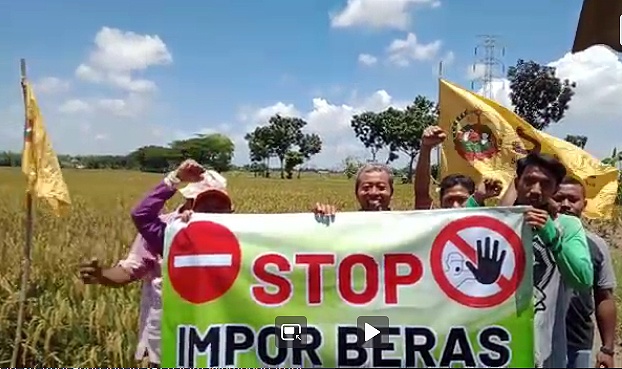JAKARTA. Indonesia’s food procurement agency (Bulog) plans to import 2 million tonnes of rice by December this year, with the first phase seeing the import of 500,000 tonnes.
Serikat Petani Indonesia (SPI) has denounced the move, stating that “this happened because of the Bulog’s failure to control government food reserves from last year, and this problem continues even this year.”
According to the SPI, before deciding on rice imports, the government must first improve the role, function, and workings of the Bulog in carrying out its duties as a government food reserve, including absorbing grain from peasants and distributing it, functioning as a government food reserve.
Likewise, rules must be established on the quantum of the reserves. The SPI has also called out the slow pace in setting prices for rice. The Union has also alerted that the timing of this import policy is counterproductive for peasants, as Indonesia is in the middle of the harvest season. These imports will directly result in falling grain prices at the farm level.
The Indonesian government has not yet fully implemented agrarian reform, which involves distributing land to Indonesian peasant families. The government has also not succeeded in stabilizing the prices of fertilizers or other production facilities, not to mention the absence of adequate protection and price guarantees for peasant-production.
Instead of taking these necessary steps, the government continues to rely on food imports to tackle food problems in Indonesia. This approach increasingly alienates the government from the principle of food sovereignty. Food sovereignty should be the main paradigm of agricultural development in Indonesia. This is already stated in the Food Law (UU), which mandates the prioritization of domestic production and makes imports the last alternative.

